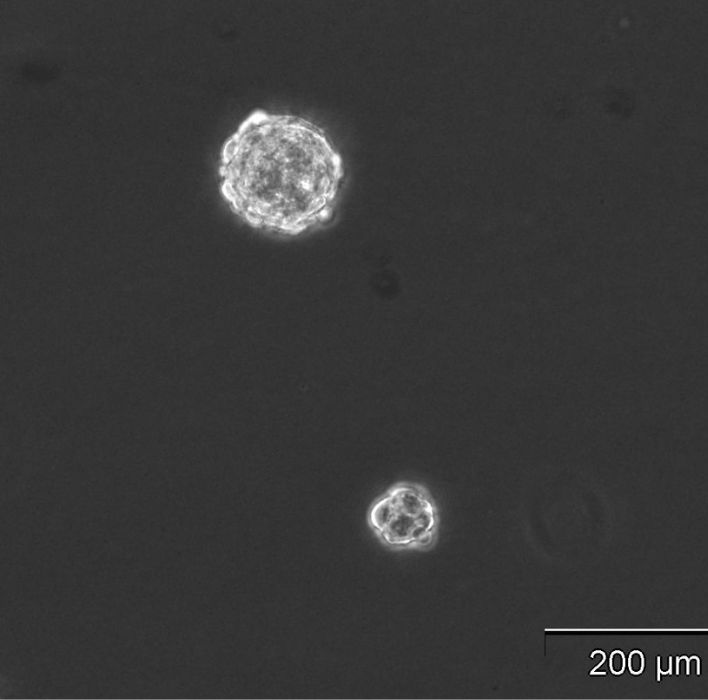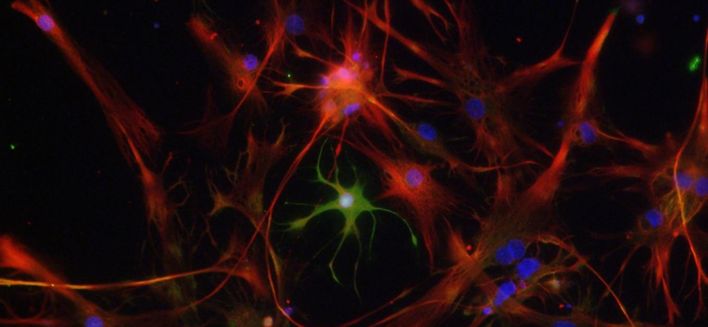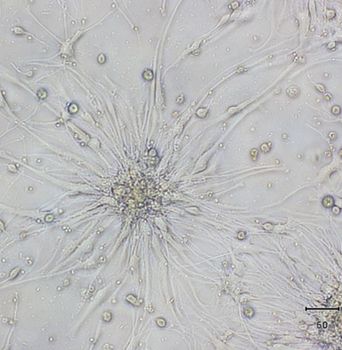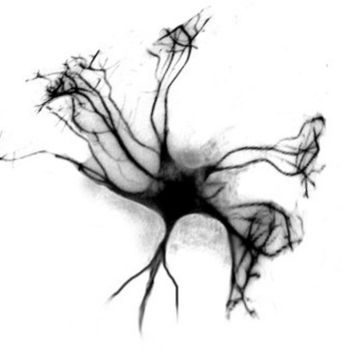
Modeling and assessing the neurobiological mechanisms of major depressive disorder using preclinical animal models and IPSCs from patients
Depression affects around 16% of the world population and is the leading cause of disability worldwide. This means that around 300 million people are now living with depression. Despite these striking numbers, the neuropathological basis of depression remains obscure; moreover, about 65% of patients fail to respond to current first-line therapies, making this field of research a top priority. This disorder cuts across all geographical and socio-economic borders and strikingly, is 2-times more prevalent in women. Given the limitations of studying the pathophysiology of Major Depression in humans, most of the constructs for therapeutic development come from animal models. Considering the numerous environmental, biological and social risk factors for depression, preclinical research implies the use of multivariable models that integrate these factors. In this project we use rodent models of depression based on exposure to known etiological factors of depression, namely chronic stress, to unveil the behavioural and neurobiological mechanisms of depression.
Importantly, changes in neurotransmitter systems, astrocytic pathology, neuroinflammatory processes and neuroplasticity deficits have been implicated in major Depression. Nevertheless, major limitations arise when trying to address patient specificities to establish personalized treatments (precision psychiatry). In order to further explore patient-specific alterations that can hasten the identification of new pathological mechanisms and molecular targets, in this project, we aim to generate depressive patient-derived induced pluripotent stem cells (iPSCs) to be differentiated into glutamatergic, serotonergic or GABAergic neurons. With it, we intend to understand the modulation of neuroplasticity phenomena as well as the neuroglia mechanisms intrinsic to MDD pathology, while considering individual characteristics.
Funding Agency
FCT; Nature Research Awards; Bial Foundation
Project Reference




Project Members


Ana João Rodrigues

João Bessa

Nuno Sousa

Nuno Dinis Alves

Andreia Vaz

Tiago Silveira-Rosa
Main Project Outcomes
S. Queirós, “Right ventricular segmentation in multi-view cardiac MRI using a unified U-net model”, in E. Puyol Antón et al. (eds) Statistical Atlases and Computational Models of the Heart. Multi-Disease, Multi-View, and Multi-Center Right Ventricular Segmentation in Cardiac MRI Challenge. STACOM 2021. Lecture Notes in Computer Science, vol 13131, pp. 287-295, Springer, Cham, 2022.
“Best Paper Award in the M&Ms-2 Challenge”, by M&Ms2 Challenge organizers and the Medical Image Computing and Computer Assisted Intervention (MICCAI) Society.
Main Project Outcomes
1. Lima, S., Sousa, N., Patrício, P.* and Pinto, L.* (2022). The underestimated sex: a review on female animal models of depression. Neuroscience & Biobehavioral Reviews, 133; 104498
2. Patrício, P., Mateus-Pinheiro, A., Machado-Santos, A.R., Alves, N.D., Correia, J.S., Morais, M., Bessa, J.M., Rodrigues, A.J., Sousa, N. and Pinto, L.* (2021). Cell Cycle Regulation of Hippocampal Progenitor Cells in Experimental Models of Depression and after Treatment with Fluoxetine. Int. J. Mol. Sci. Oct 30;22(21):11798
3. Martins-Macedo, J., Lepore, A.C, Domingues, H.S., Salgado, A.J., Gomes, E.D., Pinto, L.* (2021) Glial restricted precursor cells in central nervous system disorders: Current applications and future perspectives. Glia. 69(3), pp. 513–531
4. Antunes C., MSc, Da Silva J.D., Guerra-Gomes S., Alves N.D., Ferreira F., Loureiro-Campos E., Branco M.R., Sousa N., Reik W., Pinto L.* and Joana Marques J.* (2021). Tet3 ablation in adult brain neurons increases anxiety-like behavior and regulates cognitive function in mice. Molecular Psychiatry, May;26(5):1445-1457.
5. Patrício, P., Mateus-Pinheiro, A., Alves, N.D., Morais, M., Rodrigues, A.J., Bessa, J.M., Sousa, N., Pinto, L.* (2020) miR-409 and miR-411 Modulation in the Adult Brain of a Rat Model of Depression and After Fluoxetine Treatment. Front. Behav. Neurosci. 14:136.
6. Antunes, C., Sousa N., Pinto L.*# and Marques J.*# (2019). TET enzymes in neurophysiology and brain function. Neuroscience & Biobehavioral Reviews. Jul 102:337-344.
7. Caetano, L., Pinheiro, H., Patrício, P., Mateus-Pinheiro, A., Alves, N.D., Henriques, S.N., Baptista, F.I., Cunha, C., Santos, A.R., Ferreira, S.G., Sardinha, V. M., Oliveira, J.F., Ambrósio, A.F., Sousa, N., Cunha, R.A., Rodrigues, A.J., and Pinto, L.* #, Gomes C.A.* # (2017). Adenosine A2A receptor regulation of microglia morphologic remodelling – gender bias in physiology and in a model of chronic anxiety. Molecular Psychiatry. Jul 22(7):1035-1043.
8. Patrício, P., Mateus-Pinheiro, A., Irmler, M., Alves, N.D., Machado-Santos, A.R., Morais, M., Correia, J.S., Korostynski, M., Piechota, M., Stoffel, R., Beckers, J., Bessa, J.M., Almeida, O.F., Sousa, N, and Pinto, L.* (2015). Differential and Converging Molecular Mechanisms of Antidepressants’ Action in the Hippocampal Dentate Gyrus. Neuropsychopharmacology. Jan 40(2):338-49.
9. Mateus-Pinheiro, A., Patrício, P., Alves, N.D., Machado-Santos, A.R., Morais, M., Bessa, J.M., Sousa, N., and Pinto, L.* (2014). The Sweet Drive Test: Refining phenotypic characterization of anhedonic behavior in rodents. Front Behav Neurosci. Mar 7;8:74.
10. Luisa Pinto, António Pinheiro, João Bessa, Mónica Morais, Nuno Sousa, “Immuno-Golgi as a tool for analyzing neuronal 3D-dendritic structure in phenotypically charaterized neurons”, National patent nº105555; European Patent n.º 12718746.6, N/Ref.: PPE 48174/13.



Contact us
Phone: +351 253 604 967
Fax: +351 253 604 809
Email: icvs.sec@med.uminho.pt
Address
Life and Health Sciences
Research Institute (ICVS)
School of Medicine,
University of Minho,
Campus de Gualtar
4710-057 Braga
Portugal

Copyright ©2022 ICVS. All Rights Reserved



Copyright ©2022 ICVS. All Rights Reserved
Address
Life and Health Sciences
Research Institute (ICVS)
School of Medicine,
University of Minho,
Campus de Gualtar
4710-057 Braga
Portugal



Copyright ©2022 ICVS. All Rights Reserved
Address
Life and Health Sciences
Research Institute (ICVS)
School of Medicine,
University of Minho,
Campus de Gualtar
4710-057 Braga
Portugal

